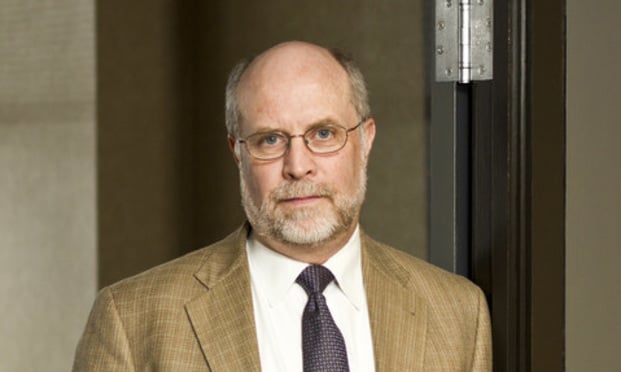Panel Upholds $119K Fees/Expenses for $12K Verdict
In awarding the full amount of attorney fees and expenses requested by the plaintiff's counsel, Northern District Judge Mark Cohen had noted the the defendants' “obstreperous conduct and the case having gone to trial.”
January 16, 2019 at 11:16 AM
5 minute read
 Kevin D. Fitzpatrick Jr. (Photo: John Disney/ALM)
Kevin D. Fitzpatrick Jr. (Photo: John Disney/ALM)
A federal appeals panel upheld lawyers receiving $119,000 in fees and expenses in a case where their client, a waitress, received $12,000 in improperly denied tips and wages.
The unpublished per curiam opinion of the U.S. Court of Appeals for the Eleventh Circuit noted that there was “room to quibble” whether the trial judge should have awarded the full amount of fees sought in the case, and that the “fee-to-judgment ratio is large.”
Nonetheless, Judges Jill Pryor, Britt Grant and R. Lanier Anderson held Tuesday that the trial judge did not abuse his discretion by awarding the fees, particularly after ruling that the hours billed were due to the club-owners' “obstreperous conduct and the case having gone to trial.”
“We just had to be persistent,” said Kevin Fitzpatrick Jr., who represented the plaintiff with partner Charles Bridgers of DeLong Caldwell Bridgers & Fitzpatrick. After Judge Mark Cohen of the U.S. District Court for the Northern District of Georgia ordered a mediation, “The other side said they weren't going to offer any money at all,” he said. “They wanted to fight.”
Mableton solo McNeill Stokes, represented the defendants, Lacura Bar and Bistro, and owners Alonzo Ross and Lamarcus Allison. Stokes could not be reached to comment.
According to court filings, Shatrailia Jackson worked at the Metropolitan Parkway nightspot from 2014 to 2015, working three or fours shifts a week. She was supposed to be paid $25 per shift plus tips but testified that sometimes she was only paid $20 and was frequently not paid at all.
“Lacura did not record the tips its servers made, did not issue paychecks or paystubs, did not issue tax documents to employees, and did not use a timeclock,” the opinion said.
“It operated as a cash-only business and lacked traditional employment records.”
In March 2015, Jackson filed a putative collective action against Lacura and its owners, asserting counts for failure to pay the minimum wage under the Fair Labor Standards Act, failure to pay other employees similarly situated and retaliatory termination.
According to Lacura's defense filings, the club fully informed Jackson of its pay and tip policy. The defense also claimed that the club was not subject to the FLSA because its annual gross receipts were below the $500,000 threshold to trigger the law.
Fitzgerald explained how the plaintiff's side shot the gross receipts argument.
“First, they showed us figures saying they made like $96,000 a year,” he said. “We subpoenaed the records of every liquor distributor in town and came up with about $350,000 in liquor costs alone.”
“We added up the lease, employee pay and security and got way over the $500,000 that way,” he said.
At trial, he said, the jury was also shown Facebook and Instagram postings “where they're swimming in cash and having money drops,” referring to events in which cash was dropped for patrons.
By the time the case went to trial, only Jackson's FLSA claims remained. The retaliation claim was dismissed prior to trial, and Fitzpatrick said his team made a strategic decision not to pursue the collective action claim.
Following a two-day trial, a jury awarded her $6,308 in unpaid wages.
After the verdict, Jackson filed a motion for liquidated damages and for attorney fees and expenses of $118,894.
Cohen granted both requests, doubling Jackson's damages to $12,616 and awarding the full sum sought by her lawyers.
In upholding Cohen's order, the appellate panel brushed aside Lacura's arguments that it had acted in good faith in compensating Jackson.
“Lacura barely attempts to demonstrate good faith, opting instead to argue that its violation 'cannot be willful' because Jackson 'was paid more than the minimum wage,'” the opinion said.
“This argument is essentially a denial of liability and amounts to an attempt to relitigate the jury's verdict.”
“Lacura kept no payroll records, produced no evidence that it sought or relied upon legal guidance, and did not even track how much money its employees were making in tips.”
The outsize fee award relative to the judgment is not too unusual in FLSA cases, Fitzpatrick said.
“People force us to go to trial on low-dollar wage and hour cases all the time,” he said. “The fee usually greatly exceeds the amount awarded by the jury.”
Noting that Lacura is still obviously a money-making concern, Fitzpatrick nonetheless said collecting the judgment is another matter.
Sounding resigned, he said, “I never know what we're going to collect.”
This content has been archived. It is available through our partners, LexisNexis® and Bloomberg Law.
To view this content, please continue to their sites.
Not a Lexis Subscriber?
Subscribe Now
Not a Bloomberg Law Subscriber?
Subscribe Now
NOT FOR REPRINT
© 2025 ALM Global, LLC, All Rights Reserved. Request academic re-use from www.copyright.com. All other uses, submit a request to [email protected]. For more information visit Asset & Logo Licensing.
You Might Like
View All


'It Refreshes Me': King & Spalding Privacy Leader Doubles as Equestrian Champ
5 minute read
Federal Judge Rejects Teams' Challenge to NASCAR's 'Anticompetitive Terms' in Agreement
Trending Stories
Who Got The Work
J. Brugh Lower of Gibbons has entered an appearance for industrial equipment supplier Devco Corporation in a pending trademark infringement lawsuit. The suit, accusing the defendant of selling knock-off Graco products, was filed Dec. 18 in New Jersey District Court by Rivkin Radler on behalf of Graco Inc. and Graco Minnesota. The case, assigned to U.S. District Judge Zahid N. Quraishi, is 3:24-cv-11294, Graco Inc. et al v. Devco Corporation.
Who Got The Work
Rebecca Maller-Stein and Kent A. Yalowitz of Arnold & Porter Kaye Scholer have entered their appearances for Hanaco Venture Capital and its executives, Lior Prosor and David Frankel, in a pending securities lawsuit. The action, filed on Dec. 24 in New York Southern District Court by Zell, Aron & Co. on behalf of Goldeneye Advisors, accuses the defendants of negligently and fraudulently managing the plaintiff's $1 million investment. The case, assigned to U.S. District Judge Vernon S. Broderick, is 1:24-cv-09918, Goldeneye Advisors, LLC v. Hanaco Venture Capital, Ltd. et al.
Who Got The Work
Attorneys from A&O Shearman has stepped in as defense counsel for Toronto-Dominion Bank and other defendants in a pending securities class action. The suit, filed Dec. 11 in New York Southern District Court by Bleichmar Fonti & Auld, accuses the defendants of concealing the bank's 'pervasive' deficiencies in regards to its compliance with the Bank Secrecy Act and the quality of its anti-money laundering controls. The case, assigned to U.S. District Judge Arun Subramanian, is 1:24-cv-09445, Gonzalez v. The Toronto-Dominion Bank et al.
Who Got The Work
Crown Castle International, a Pennsylvania company providing shared communications infrastructure, has turned to Luke D. Wolf of Gordon Rees Scully Mansukhani to fend off a pending breach-of-contract lawsuit. The court action, filed Nov. 25 in Michigan Eastern District Court by Hooper Hathaway PC on behalf of The Town Residences LLC, accuses Crown Castle of failing to transfer approximately $30,000 in utility payments from T-Mobile in breach of a roof-top lease and assignment agreement. The case, assigned to U.S. District Judge Susan K. Declercq, is 2:24-cv-13131, The Town Residences LLC v. T-Mobile US, Inc. et al.
Who Got The Work
Wilfred P. Coronato and Daniel M. Schwartz of McCarter & English have stepped in as defense counsel to Electrolux Home Products Inc. in a pending product liability lawsuit. The court action, filed Nov. 26 in New York Eastern District Court by Poulos Lopiccolo PC and Nagel Rice LLP on behalf of David Stern, alleges that the defendant's refrigerators’ drawers and shelving repeatedly break and fall apart within months after purchase. The case, assigned to U.S. District Judge Joan M. Azrack, is 2:24-cv-08204, Stern v. Electrolux Home Products, Inc.
Featured Firms
Law Offices of Gary Martin Hays & Associates, P.C.
(470) 294-1674
Law Offices of Mark E. Salomone
(857) 444-6468
Smith & Hassler
(713) 739-1250






